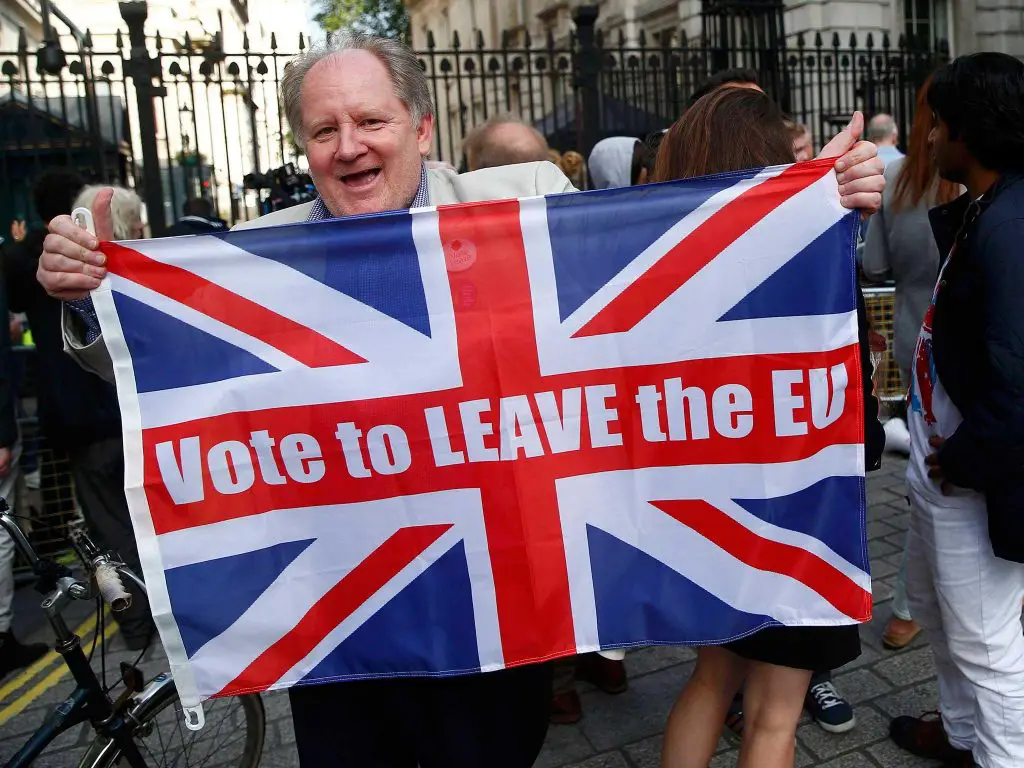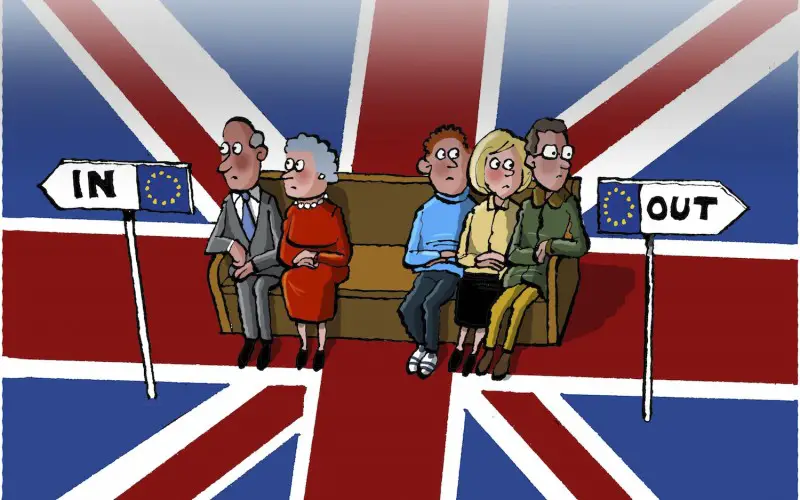On June 8, British prime minister Theresa May called a parliamentary election in the hope of strengthening the Conservative Party’s majority before going into Brexit negotiations. However, the plan backfired and she ended up losing that majority, with the opposing Labour Party gaining an additional thirty-one seats.
Now, with Brexit negotiations underway, Britain is facing unforeseen challenges—most notably the inability of officials to agree on what they want out of the deal. May had originally hoped to negotiate a “hard” Brexit—in other words, one that is resolutely anti-EU. After the recent election, however, her lack of support may leave her with no choice but to soften her position.
The election has led in particular to one increasingly problematic issue: British officials have yet to agree on the decision between a “soft” or a “hard” Brexit. This refers to the level of interaction that Britain will have with the EU after Brexit takes place. According to BBC News, a “hard” Brexit could mean, “no compromise on issues like the free movement of people, leaving the EU single market and trading with the EU as if it were any other country outside Europe, based on World Trade Organization rules.”

As a result, one could expect to see trade restrictions between the UK and the EU. This is the position most commonly favored by May and the Conservative Party. May has even gone so far as to say that no deal would be better than a bad one for the UK, indicating that she would rather abandon negotiations than make too many concessions to the EU. In contrast, a “soft” Brexit “could involve keeping close ties with the EU, possibly through some form of membership of the European Union single market, in return for a degree of free movement.” This is the position more commonly taken by members of the Labour Party, who want to protect the rights of workers. It would allow the UK to retain some of the benefits of the EU, though they would still be somewhat restricted by the organization.
Before the election, May’s majority meant that her “hard” Brexit position received more support from Parliament. However, Britain is essentially entering into Brexit negotiations divided, with no unified goal for what it hopes to ultimately achieve. According to Dan Roberts, Brexit policy editor for “The Guardian,” “government insiders report a dramatic change of mood at the Department for Exiting the European Union (DExEU) since the general election, with growing Treasury influence helping force ministers to choose between prioritizing economic interests or sovereignty.”
He continues to say that “of course the policy position remains the Lancaster House speech which says what we want is a high-access, high-control situation, but the author of that speech [reported to be Downing Street advisor Nick Timothy] is no longer in an influential position.” In other words, though officially Britain’s position remains that favored by May, many of its supporters are no longer in positions of power.
Initially May wanted the “have her cake and eat it too” approach to Brexit, which is to say that she wanted to negotiate a Brexit deal based on full access to the European single market without concessions over immigration and payments to the EU. Yet, the strategy now seems unachievable. May is being criticized for her absolutist approach to negotiations, which is making it nearly impossible to come to an agreement. Rather than continue negotiating, she may walk out of negotiations in protest.
Not only is the Parliament split in terms of the approach it plans to take in negotiations—the Conservative Party itself is seeing mounting tensions among party members as the negotiations move forward. It recently came out that the newest member of Theresa May’s Brexit negotiating team has been filmed calling for the destruction of the European Union. Steve Baker, who was appointed by May to help negotiate Brexit, said that the EU “should be ‘wholly torn down,’ before branding it an ‘obstacle’ to world peace and ‘incompatible’ with a free society.”
After such an obvious anti-EU outburst, Britain’s negotiating position will likely be weakened even further—which is favorable neither to the Labour Party nor to the Conservatives. Considering the EU needs to set a strong precedent to discourage other countries from leaving, they are unlikely to let such a remark slide. This footage could reportedly risk the UK’s ability to secure good Brexit terms and has raised a major question about the Prime Minister’s judgement.
Another pressing issue that has arisen in light of May’s loss of power is the fact that there is as yet no solid stance concerning what is to happen to the EU nationals who are currently living in the UK. Officials are currently hoping to negotiate a grace period that aims to help the three million EU nationals living in Britain or arriving in the country before the Brexit deadline, giving them extra time to arrange their affairs and status in the UK. Whereas previously EU nationals were able to move freely between the UK and the rest of the EU, once Brexit is fully in place, this will no longer be the case.
According to Shehab Khan, writer for the “Independent,” what May is currently proposing could restrict the ability of EU citizens living in the UK to bring their family members into the country and would leave these EU citizens without the protection of the European Court of Justice while in the UK. In all, they are likely be left in a more vulnerable position. Given that British officials are so conflicted in their various stances, EU nationals are, in the meantime, stuck waiting to find out what will happen.
With May threatening to walk out of negotiations in order to maintain a strong stance despite criticism from the Labour Party and the Liberal Democrats, tensions seem to be running high. However, at the least British officials are reportedly increasingly accepting the inevitability of a painful trade-off between market access and political control when the UK leaves the EU. Though May’s initial plans are failing, it remains to be seen how her decreasing power will impact the final Brexit agreement.












